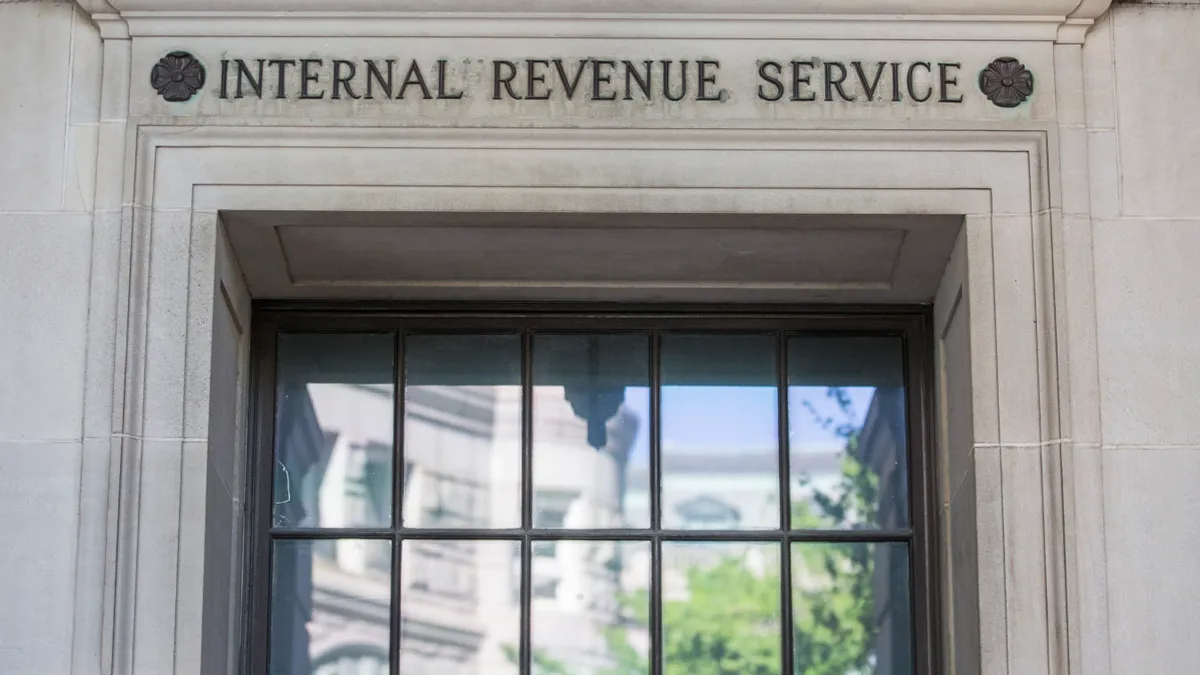Dive Brief:
- The Internal Revenue Service has fallen short of plans to answer more taxpayer telephone calls, support victims of identity theft and eliminate backlogs of both amended tax returns and employee retention credit claims, according to the Office of the National Taxpayer Advocate.
- The IRS could take the biggest stride toward upgrading service to taxpayers by prioritizing the improvement of online accounts for businesses, individuals and tax professionals to the level set by private financial institutions, the agency watchdog said in its annual report to Congress.
- “The IRS has a tall mountain to climb to achieve its goals of rebuilding the agency, modernizing its systems and providing the quality service taxpayers deserve,” Erin Collins, the national taxpayer advocate, wrote in a preface. At the same time, she praised the agency’s success in reducing a pandemic-period backlog of more than 35 million unprocessed tax returns.
Dive Insight:
The detailed criticism from Collins coincides with an effort by Republican lawmakers to deepen cuts to roughly $80 billion provided to the IRS in 2022 under the Inflation Reduction Act for upgrading customer service, replacing decades-old technology and cracking down on tax evaders.
Leaders from both chambers of Congress said on Jan. 7 that they would accelerate a $10 billion reduction in IRS enforcement as part of a proposed deal on 2024 government spending. The agreement has come under fire from some Republicans seeking bigger spending cuts.
“I want to emphasize that additional funding is essential for continued improvement in taxpayer interactions with the IRS,” Collins said. “Replacing antiquated technology systems and ensuring the IRS has enough employees to perform basic services such as answering telephone calls and processing correspondence simply can’t be done without sufficient resources.”
The IRS, while making improvements in serving taxpayers, has overstated its progress by claiming to answer 85% of calls, Collins said.
“Only 35% of callers reached an IRS employee during the filing season, and only 29% of callers reached an IRS employee during the full fiscal year,” she said.
Although the IRS eliminated its backlog of Form 1040s, its stack of unprocessed amended business and individual tax returns remains more than double the pre-pandemic level, Collins said. “In addition, the percentage of taxpayer correspondence classified as ‘overage’ has reached its highest level in recent memory.”
The agency also needs to work through a backlog of about 1 million claims for the Employee Retention Credit, which Congress created to aid employers that were shut down by a pandemic-induced government order during 2020 or the first three calendar quarters of 2021.
“The IRS reports it has received a raft of fraudulent and otherwise non-qualifying claims, making the ERC difficult to administer,” Collins said.
“If it pays claims quickly without adequate review, it could pay billions of dollars to non-qualifying persons,” she said. “If it takes the time to review claims carefully, eligible employers will experience significant delays in receiving the credit, and in extreme cases, employers who need the funds immediately could go out of business.”
Collins flagged some IRS successes.
For example, from the close of the 2021 filing season to the end of last year, the IRS transcribed, digit-by-digit, a backlog of 17 million paper-filed Form 1040s.
Also, by the end of fiscal year 2023, the IRS increased its phone call answer rate to 29% from 11% at the close of the 2021 filing season, she said.












